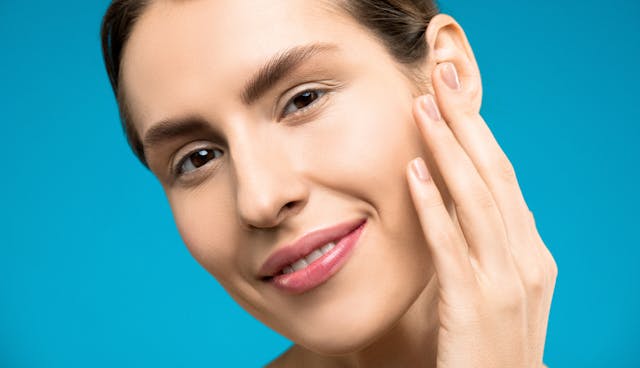Facials are treatments used in skincare routines to help improve and maintain the appearance of the skin. They are a non-invasive approach to addressing dull and lifeless skin. Facial specialists can improve individuals’ skin texture and clarity by utilizing different techniques and products.
What Is a Facial?
A facial is a targeted skincare treatment designed to cleanse, exfoliate, and hydrate the skin. It often incorporates several steps to address various skin concerns and improve overall skin health. Typically performed by licensed professionals, facials involve customized products and techniques tailored to individual skin types and needs.
The process begins with a detailed assessment of the client’s skin condition, followed by cleansing and exfoliation. Treatments may also include steaming, extraction of clogged pores, and the application of serums, masks, or moisturizers. While these skincare treatments often vary in complexity, their primary focus is to achieve clean and refreshed skin.
What Are the Different Types of Facials?
Facials can be categorized into different types based on the techniques and products used. Each type is tailored to meet specific skincare needs. Some standard skincare treatments are:
- Deep-Cleansing Facial: This facial type targets clogged pores and breakouts. It typically involves cleansing, exfoliation, steaming, and manual extraction of impurities. Oriented toward those with oily or acne-prone skin, this facial helps maintain clear and smooth skin.
- Hydrating Facial: Focused on restoring moisture levels, hydrating facials use high-quality serums and masks to rehydrate the skin. Specialists could recommend this treatment for individuals experiencing dry skin.
- Anti-Aging Facial: An anti-aging facial focuses on reducing fine lines and wrinkles. Enriched with antioxidants and firming products, this facial promotes a rejuvenated appearance. Methods such as light therapy or collagen-boosting treatments may also be included.
- Brightening Facial: Designed to improve uneven skin tone and pigmentation, this facial type often utilizes vitamin C serums and exfoliation techniques. This treatment works to provide a more luminous and even complexion.
- Chemical Peels: Although more advanced, certain chemical peel facials are offered to exfoliate deeper layers of skin. They involve chemical solutions tailored to skin concerns such as discoloration or texture irregularities.
What Are the Advantages of Facials?
Facials provide several benefits for maintaining and enhancing skin health. One key advantage is their ability to improve overall skin cleanliness. By thoroughly cleansing and exfoliating the skin, these skincare treatments remove buildup that may clog pores or lead to uneven texture. This process also supports better absorption of skincare products by the skin. Facials also act as preventative care for the skin. Regular treatments can support long-term skin health. This routine includes managing signs of aging, recurring breakouts, or uneven skin tone before they develop into more significant issues.
Another significant benefit is the hydration boost that facials can deliver. Hydrated skin often appears smoother and more refreshed, making hydration-focused facials effective for individuals experiencing dryness. Additionally, certain facials are effective at addressing specific skin concerns. Anti-aging facials may help to reduce the appearance of wrinkles and support a firmer skin texture. Brightening facials may assist with improving the appearance of uneven tone or dullness.
Find Out More Concerning Skin Care and Facials
These treatments provide an effective way to address dull and tired skin. With their varied techniques and focused treatments, they serve as a non-invasive option for enhancing skin health. For individuals interested in learning more about facials and how they can support a skincare routine, consult a licensed professional.

